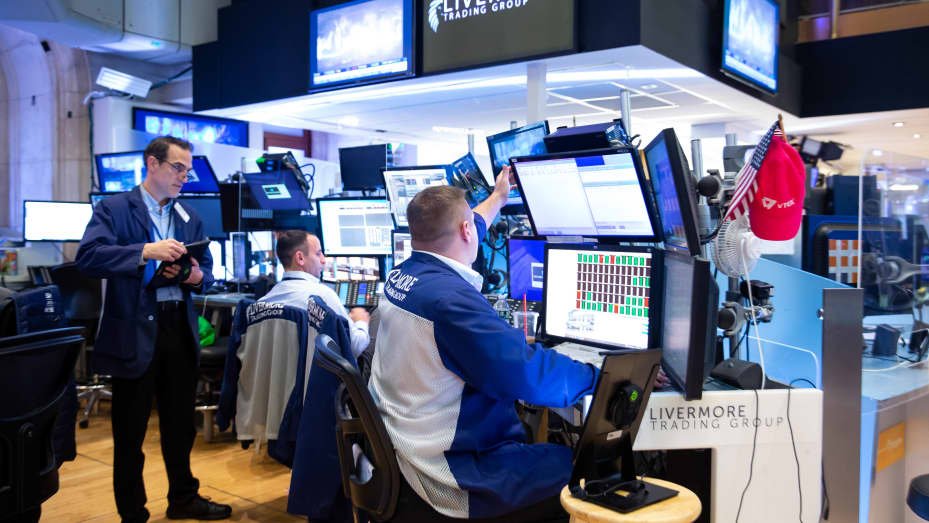Things to know before the securities exchange opens

The current week’s ricochet in tech stocks was cleared out Thursday, sending the Nasdaq down 2.5% and the S&P 500 down 1.4%. The Dow Jones Industrial Average, which doesn’t have as much tech openness, dropped 0.5%. Each of the three benchmarks broke multiday series of wins.
U.S. stock prospects sped up to the drawback Friday after Dow stock JPMorgan fell 4% in the premarket as financial backers parsed quarterly outcomes from the country’s biggest bank by resources. The organization’s final quarter per-share income of $3.33 and income of $30.35 billion, both beat gauges.
In any case, JPMorgan said it took a $1.8 billion net advantage from delivering saves for advance misfortunes that never appeared; without that benefit income would have been $2.86 per share, missing assumptions.
The Nasdaq finished Thursday almost 8.7% lower than its November record-breaking high, approaching remedy an area. The S&P 500 and the Dow completed 3.3% and almost 2.3%, separately, away from their record-breaking highs last week.
Wells Fargo shares level, Citigroup falls after quarterly outcomes
Notwithstanding JPMorgan, other bank income kept on coming in, with Wells Fargo on Friday posting surprisingly good final quarter income of almost $20.86 billion. Shares were somewhat level in the premarket.
Results were helped by a $875 million hold discharge that the bank had saved during the Covid pandemic to defend against conceivable far reaching credit misfortunes. Wells Fargo additionally experienced 5% development in advances from its shopper and business portfolios in the final part of 2021.
Citigroup shares fell over 3.7% on Friday after the financial goliath announced a lofty benefit drop for the final quarter. The organization’s overall gain dropped 26% to $3.2 billion. Citigroup refered to an increment in costs for the sharp decay.
Biden to choose Sarah Bloom Raskin as bad habit seat for oversight at Fed
President Joe Biden will assign Sarah Bloom Raskin to be the Federal Reserve’s next bad habit seat for management, seemingly the country’s most impressive financial controller, as indicated by individuals acquainted with the matter.
She’ll confront an affirmation hearing before the Senate Banking Committee, which this week heard from Fed Chair Jerome Powell, selected briefly term, and Fed Governor Lael Brainard, named for bad habit seat.
Biden’s decisions for the Fed administrative roles come as national investors are relied upon to climb loan costs on numerous occasions this year subsequent to tightening closes. There’s likewise talk concerning how to begin decreasing the Fed’s monetary record.
December retail deals drop considerably more than anticipated
The public authority said December retail deals fell in general 1.9% and barring automobiles dropped 2.3%, both were a lot of lower than gauges for a 0.1% decay and 0.3% increment, separately. The enormous drops came against a background of customers scattering occasion purchasing recently because of production network worries as expansion took off.
This week, December’s shopper cost file rose 7% year over year, matching assessments and the speediest speed since June 1982, and last month’s maker cost file rose 9.7% year over year, marginally lower than gauges, yet the biggest increment on record.
Disclaimer: The views, suggestions, and opinions expressed here are the sole responsibility of the experts. No Money Virtuo journalist was involved in the writing and production of this article.






